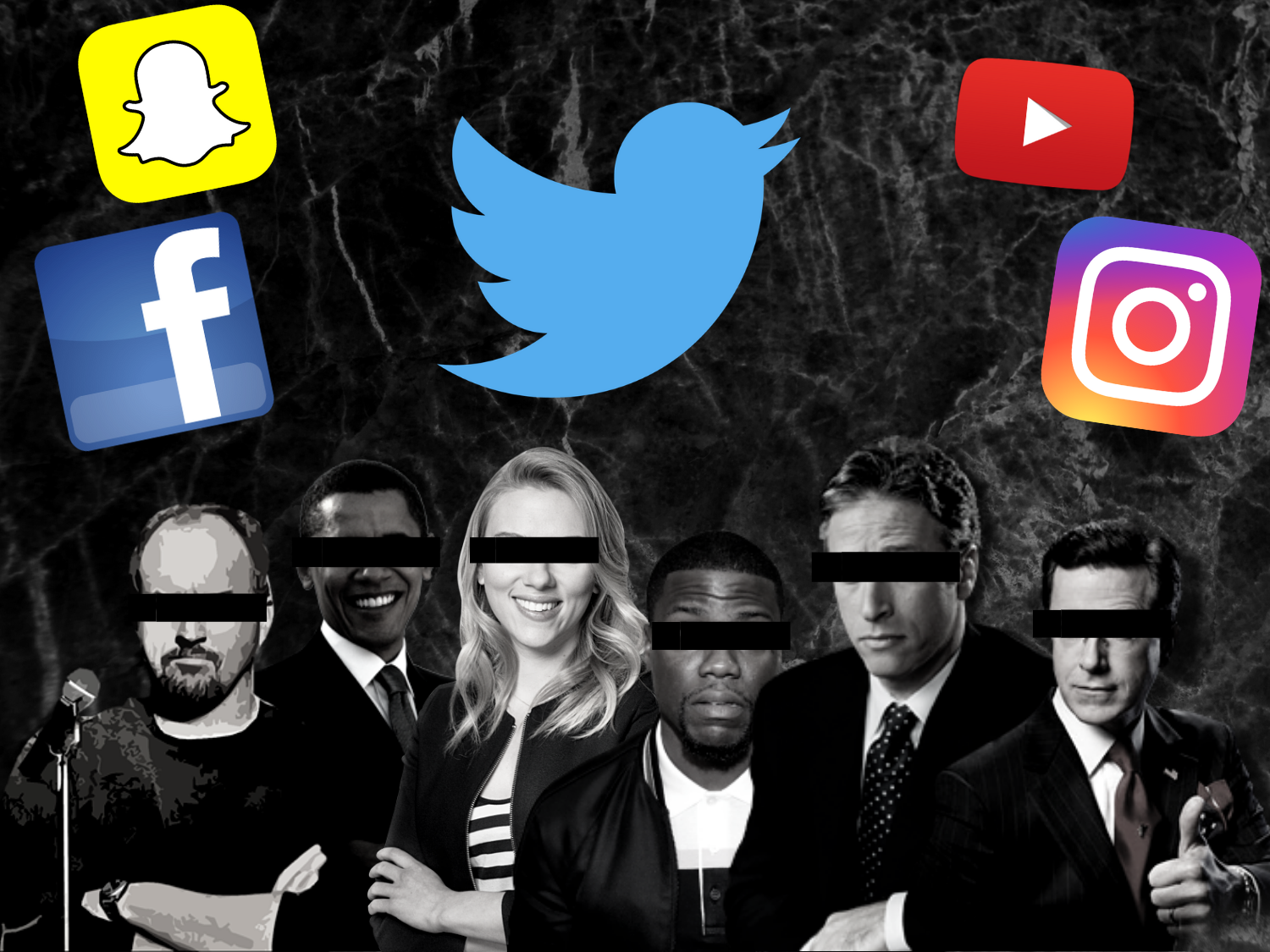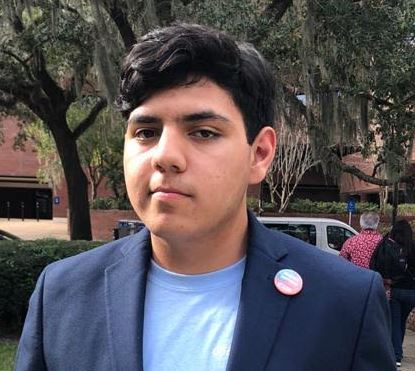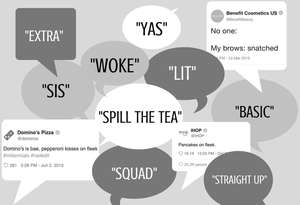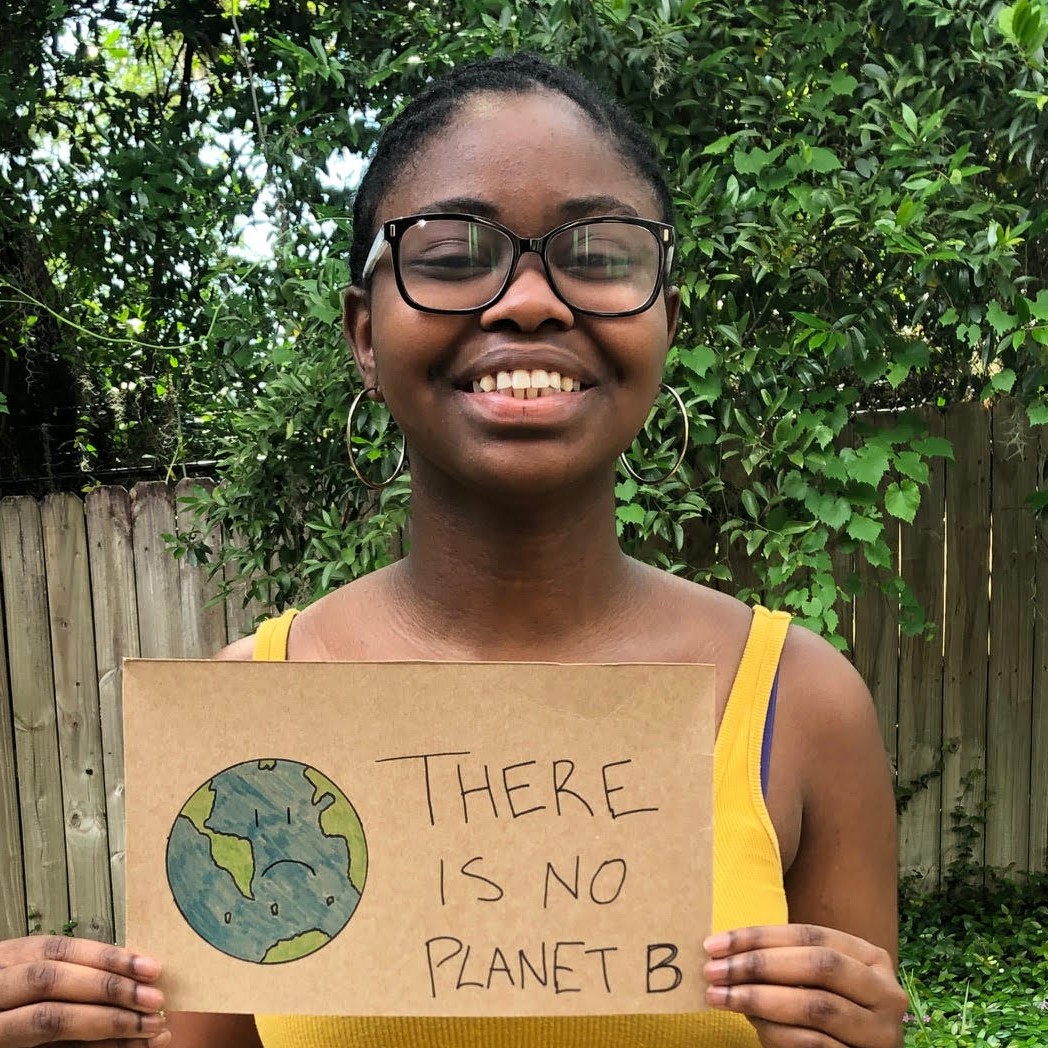
We Live in a Society: Comedians Vs Cancel Culture and the Need for Satire
What is Cancel Culture?
During the last few years, we’ve been seeing the rise of a new idea concerning the way that the public interacts with celebrities and media. More specifically this is the idea of “canceling” someone. The idea of “canceling” someone means that they are being culturally blocked from having a prominent public platform or career. It occurs when a celebrity or a public figure says or does something that is considered offensive. This results in public backlash, usually headed by politically progressive social media groups, which then in turn cause calls to “cancel” the person, which according to Vox, means to effectively end their career or remove their cultural significance, through methods such as boycotts of their work or petitions for disciplinary action from an employer. From this comes the phrase “Cancel Culture”. This phrase refers to the idea that “canceling” people has become a part of our culture and anyone who says or does anything offensive to a particular group will be “canceled” will be canceled. However, to this day, people debate whether there really is a “cancel culture” in our society.
In 2019, there were multiple examples of celebrities who faced being “canceled” such as, R. Kelly, Kanye West, Scarlett Johansson, and Gina Rodriguez, who made offensive statements, as well as comedians such as Kevin Hart and Shane Gills who had made some jokes that were perceived as racist and homophobic in the past, and received backlash after the jokes were found out by the general public.
However, the majority of people who have been “canceled” do not have their careers ended. For example, Kevin Hart withdrew from hosting the Oscars, but his movies and comedy shows were still successful after the wave of backlash against him passed. Shane Gills lost his position in Saturday Night Live, but he has been received well by the public at shows, and he has even been defended by fellow comedians like Ricky Gervais and David Spade.
The phrase “Cancel Culture” is a loaded one, which gives way to a much larger discussion. Even if you do not know what it means in its entirety, you have probably seen it on your social media, or have heard others discuss it. Discussions about “Cancel Culture” can really be found all over the internet, and many people have spoken up about it, and whether they are arguing in favor of it, arguing against it, or questioning its existence or legitimacy as a whole, “Cancel Culture” has become a major source of social conflict and tension. Supporters of “Cancel Culture” believe it will discourage immoral behavior of celebrities and influencers by punishing people who behave in ways that are seen as inappropriate. However, those who disagree believe that the idea limits the freedom of speech by telling society that they have a right to erase anything and anyone that they personally disagree with.
However, one of the most controversial aspects of “Cancel Culture” is how the movement in general tends to deal with jokes and satire that they find offensive. Most people aren’t offended by satire and jokes. Most comedians and stand-up antics are welcome by audiences in general. But the problem arises when comedians and entertainers tread along the lines of satire and joke about taboo subjects. Important questions that need to be addressed still remain: How far is too far? Why is satire important? What exactly constitutes a “Cancel Culture”?
Origins
Today in the US we live in a divided society. Politics, class, and religion: these and many more act as lines in the sand against unity. Together we can cross those lines in the sand, but first we must go back to where it all began.
The phrase originates from the 1991 film New Jack City, in which one of the characters says the line “Cancel that b*tch. I’ll buy another one.” In 2010, Lil Wayne uses the line in his song “I’m Single”, where he sings: “Yeah, I’m single / n***a had to cancel that b*tch like Nino.” But the phrase really gained popularity on an episode of VH1’s reality show Love and Hip-Hop New York that aired in December 2014, where cast member Cisco Rosado tells his love interest during a fight, “you’re canceled.” From then on, the phrase could be found all over Twitter in 2015, being used as a reaction to someone doing something you disapproved of- regardless of whether you were serious.
As time went on, the phrase began to correlate with civil rights movements and took advantage of social media platforms like Twitter to give a louder voice to black citizens and other marginalized groups within society. Anne Charity Hudley, the chair of linguistics of African America for the University of California Santa Barbara, can be quoted as saying “Canceling is a way to acknowledge that you don’t have to have the power to change structural inequality, … You don’t even have to have the power to change all of public sentiment. But as an individual, you can still have power beyond measure.... When you see people canceling Kanye, canceling other people, it’s a collective way of saying, ‘We elevated your social status, your economic prowess, [and] we’re not going to pay attention to you in the way that we once did. ... ‘I may have no power, but the power I have is to [ignore] you”
Cancel Culture Today
The problem arises when people see “Cancel Culture” as a substitute for activism. It is every person’s right to have an opinion, and social media provides a platform for every voice to be heard- regardless of political correctness. But going on social media and “canceling” someone does not foment social change. Being ‘woke’ on social media does not foment political reform. In our modern society, it has become too easy to simply go on social media, see something we believe is wrong, make a post about why we believe it is wrong, and we go on with our day, satisfied that what we just did counts as activism. Former President Barack Obama spoke about the issue, saying “there is this sense that 'the way of me making change is to be as judgmental as possible about other people and that's enough.... That's not activism. That's not bringing about change. If all you're doing is casting stones, you're probably not going to get that far. That's easy to do.” If we simply “cancel” everything that we believe is wrong and leave nothing in its place, we are fixing nothing.
It may seem as if we are eliminating hate, but when we offer no solutions, no means of changing things, no olive branches or chances at peace, we simply create more division, more conflict, and more hate.
What is the Importance of Satire?
It should be said that the general public has a few misconceptions about how comedy works in general. Laughter is a positive emotion; we feel good when we laugh. For that reason, people see laughter and comedy as a ‘happy’ thing. But the truth is, oftentimes jokes have their roots in very dark subject matter. The ability to take pain and turn it into a source of joy through laughter is part of what makes comedy so powerful and positive. “Robust satire is often a sign of crisis and the ability to share and consume it is a sign of a free society,” said Sophia McClennen, professor of international affairs and comparative literature and director of Penn State’s Center for Global Studies. “We see satire emerge when political discourse is in crisis and when it becomes important to use satirical comedy to put political pressure on misinformation, folly, and the abuse of power.”
Often, comedy and satire were used as methods of political activism, often used to criticize political leaders and institutions as a whole. In America, this use of politicized satire can be traced to the American colonists in the form of satirical cartoons to mock King George and depict him as an idiot. “The Founders didn’t just enjoy humor—they believed it was politically important,” write McClennen and Remy Maisel, a recent Penn State undergraduate in media studies, who worked together on the book Is Satire Saving Our Nation? “And so, they employed the pen and the sword, using satirical works as ‘weapons in a literary and ideological war to decide the future of the new Republic.'”
Today, thanks to the internet, satire is more accessible than ever to the average citizen. But satire is just as important in our modern age as it was at the birth of the USA. After the 9/11 terrorist attacks, television satirists, such as Jon Stewart, who hosted the Daily Show, and Stephen Colbert, who hosted the Colbert Report, were some few people who spoke out and criticized US government officials through the use of political satire. It is important that the general public understand the greater purpose of satire in society. Satire is more than simple entertainment or ridicule. The goal of good satire is not simple mockery, but to incite larger and more in-depth conversation about controversial subjects. It’s difficult to begin a meaningful conservation about sensitive topics. Sometimes it takes controversy to break the silence.
It’s easy to look at a joke or a passing comment and just think “Wow that’s offensive”. But sometimes that just may be the goal. If people don’t talk about subjects that they find offensive and break the silence on something considered taboo, it just becomes easier for injustices and acts of oppression to continue. “The point is this—and it has to be emphasized again and again—satire only reminds us of the sad state of affairs; it doesn’t create it, it can’t mock what doesn’t exist,” McClennen and Maisel write. “But, as we’ve explained, satire’s goal is not demoralizing mockery; its goal is to invigorate public debate, encourage critical thinking, and call on citizens to question the status quo.”
A Message for the People of Today
In these challenging times, stress and panic become common occurrences of our daily lives. We may not always feel it, but those feelings tend to stick around in the back of our minds. The negative psychological effects of confinement on the human mind have already been scientifically proven. Now more than ever, the need for human communication is at an all-time high. Conflict, controversy and injustice will never cease to exist. For the sake of our families, our communities, and our countries, I urge you to communicate. Now that we are more divided than ever, we must continue to communicate and discuss. We must debate and disagree, but never stay silent. Isolation has taught us the value of human connection and I urge you to make use of the technology available to us and spread your messages. Now is not the time to censor things because we disagree. Now is the time to focus and learn how we can make real change in our communities. The future is in our own hands. We don’t live in a dystopia where we must cancel anything and everything we disagree with.
We live in a society...
Copyright Disclaimer:
Under Section 107 of the Copyright Act 1976, allowance is made for "fair use" for purposes such as criticism, comment, news reporting, teaching, scholarship, and research. Fair use is a use permitted by copyright statute that might otherwise be infringing. Non-profit, educational or personal use tips the balance in favor of fair use.
Images, likeness, and branding in this article are used for purposes protected under the Copyright Act of 1976 Section 107, as they fall under “fair use”.
Citations
“Why We Need Satire When Times Are Tough.” Futurity, 28 Jan. 2015, www.futurity.org/satire-politics-845712/.
Romano, Aja. “Why We Can't Stop Fighting about Cancel Culture.” Vox, Vox, 30 Dec. 2019, www.vox.com/culture/2019/12/30/20879720/what-is-cancel-culture-explained-history-debate.
Cillizza, Chris. “What Barack Obama Gets Exactly Right about Our Toxic 'Cancel' Culture.” CNN, Cable News Network, 30 Oct. 2019, www.cnn.com/2019/10/30/politics/obama-cancel-culture/index.html.
Khazan, Olga. “The Dark Psychology of Being a Good Comedian.” The Atlantic, Atlantic Media Company, 1 Mar. 2014, www.theatlantic.com/health/archive/2014/02/the-dark-psychology-of-being-a-good-comedian/284104/.

































Comments